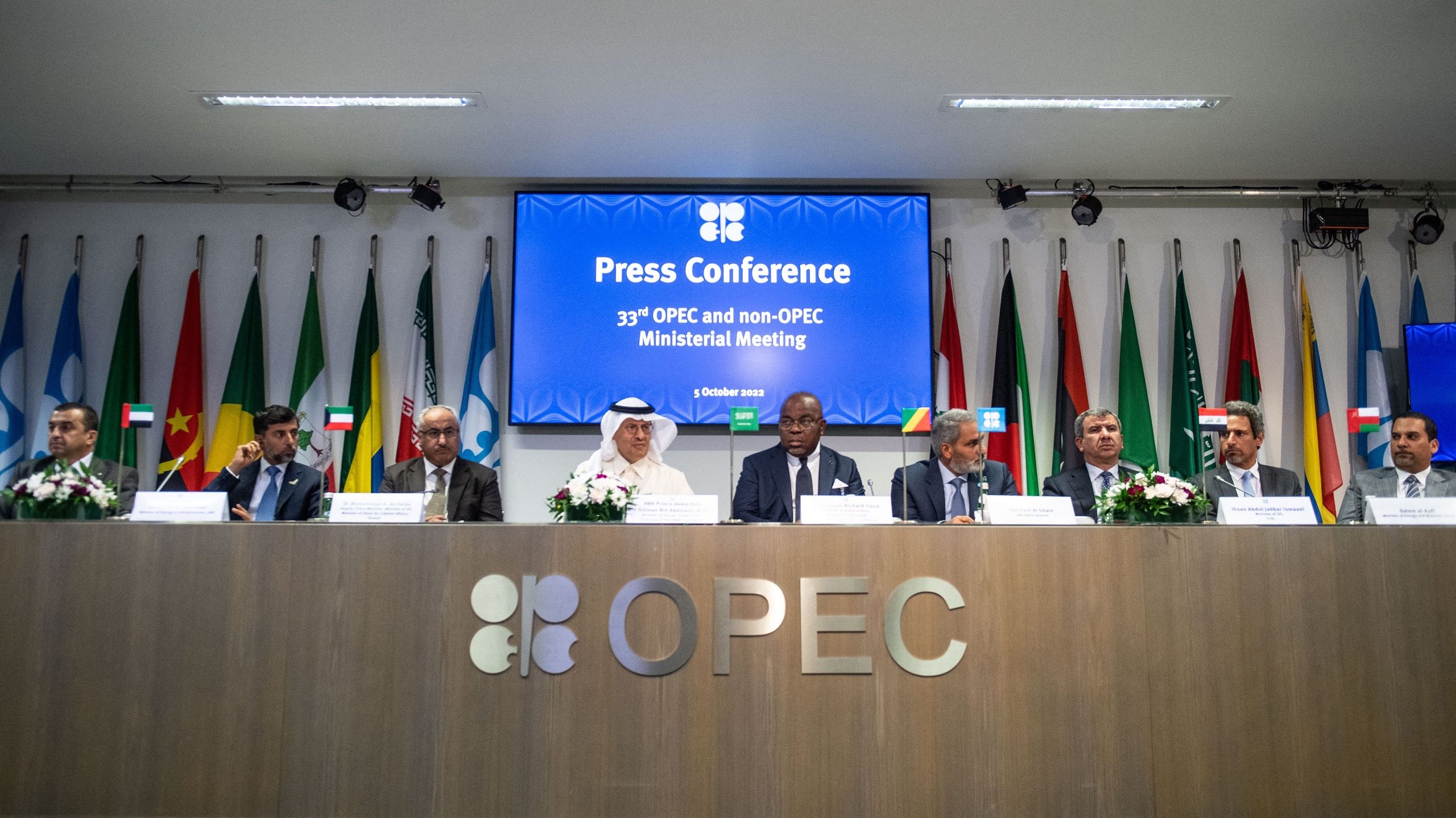As OPEC+ Cuts Oil Production, Saudi Alliances May Shift From Washington to Moscow
Decision allows Putin to influence market prices ahead of EU embargo on Russian oil in December
OPEC+, the grouping that includes the 13 member states of the Organization of Petroleum Exporting Countries plus 11 non-OPEC allies, agreed on Wednesday that it would further cut oil production in an attempt to raise prices. The decision caused controversy with the United States and other Western countries that already find themselves in energy shortages due to the sanctions imposed on Russia after its invasion of Ukraine.
The decision will lead to a decrease in oil production by 2 million barrels per day, which represents about 2% of the oil produced globally, beginning in December.
US National Security Adviser Jake Sullivan and National Economic Council director Brian Deese said in a statement, “The president is disappointed by the shortsighted decision by OPEC+ to cut production quotas.”
Dr. Nicolai Due-Gundersen, author of Defending Dictatorship and lecturer at the United Nations, explained that Europe is already facing an energy crisis, with some energy prices doubling or even tripling for households and businesses, which are forced to consider closing due to higher electricity prices and related charges.
“Increased oil prices will feed into that and at a time when some Western countries are struggling with inflation or entering a depression,” Due-Gundersen told The Media Line.
OPEC is an inter-governmental organization of 13 oil-exporting nations that coordinates and unifies the petroleum policies of its member countries. One of its leaders is Saudi Arabia, which has good relations with both the Russian Federation and the United States.
After the Russian invasion of Ukraine in February this year, the West imposed several sanctions upon the Russian Federation. Among these sanctions, the US bans all gas and oil imports from Russia, and starting in December, the EU will ban all the oil imports of Russian oil that come by sea. From February 2023, Europe will ban all imports of refined oil products coming from Russia.
Francesco Sassi, a researcher in energy geopolitics and markets at Ricerche Industriali ed Energetiche, a research center and consultancy based in Bologna, Italy, told The Media Line that the oil production cut made clear the world was heading toward a more explicit confrontation between the oil producer-countries and the West.
He explained that the oil producers are interested in keeping up oil prices and strengthening upward price tendencies ahead of the implementation of the EU embargo on Russian oil. Furthermore, this OPEC+ decision could have been taken due to several factors that impacted oil prices in the recent past, especially during COVID lockdowns, when oil demand plummeted.
“Gulf states, especially with generous welfare, may be trying to increase oil prices to maintain subsidies, and financially recover from increased welfare packages during COVID,” Sassi said, adding that the decision is likely cementing the political ties between Moscow and Riyad. Obviously, he said, “this has major consequences for the effectiveness of the Western sanctions on Moscow in response to Ukraine’s invasion.”
Due-Gundersen says that with Russia and Saudi Arabia expanding their relations and agreeing on how to weaponize their common oil resource, we may see shifting alliances between Saudi Arabia and the West.
“President Biden will be particularly upset after paying his respects to Saudi Arabia’s de facto ruler MBS [Mohammad bin Salman] that Saudi Arabia did not maintain a steady oil output,” he said. However, believes MBS, the prime minister and crown prince, is likely gambling that the US still needs Saudi Arabia geopolitically in addition to oil exports. He noted also that this could also be related to Saudi Arabia’s internal politics.
As MBS continues to promote reforms and his Vision 2030 project, saying no to America may be another way of showing more conservative local political forces that he is not too Western-allied at a time when some are already criticizing his reforms, he explained.
“This is especially true when considering the Abraham Accords and to what extent MBS may wish to endorse normalization with Israel in the future, even if it’s indirect,” said Due-Gundersen.
Sassi explained how this decision might affect the United States and the Biden Administration specifically. First, the OPEC+ decision creates a problem for the Biden administration just one month before the key mid-term elections. “The influence of a Republican victory over the implementation of the Biden agenda could have important consequences for the energy transition within the US,” he warned.
Secondly, the decision makes it harder for the US and its allies to reduce Moscow’s revenues from selling its oil, even at discounted rates, added Sassi. With the oil embargo in Europe and the possibility of a price cap on Russian oil, Moscow has additional leverage to influence the global energy markets through OPEC+, he explained.
“Saudi’s move is an act of defiance to the US shuttle diplomacy in the Gulf and displays the weakening of Washington’s position in the region,” he concluded.


